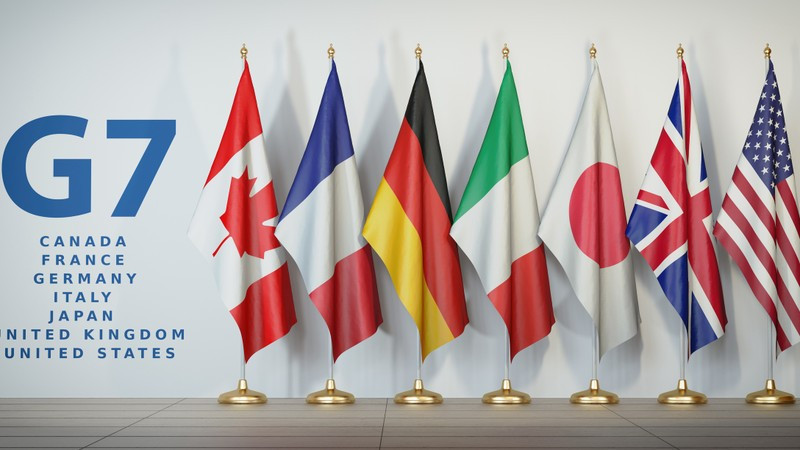Italy officially assumed the rotating presidency of the G7 on January 1, 2024. At a recent press conference, Italian Prime Minister Giorgia Meloni emphasised that AI technology will be the main topic at the G7 Summit next June in southern Italy.
Previously, Meloni had expressed her concern about the impact of AI on the labour market.
She also told reporters that supporting African development would be a central theme of her G7, saying it was vital to dissuade would-be migrants from heading to Europe.
Taking over the G7 Presidency from Japan, Italy faces a test of leadership capacity in a context where the world is shaken by a series of challenges, such as uncertain economic recovery prospects, epidemics, climate disasters, and conflicts in Ukraine and the Middle East.
In particular, with its rapid coverage and outstanding features, super-smart AI technology has emerged as a challenge of the era, with unpredictable risks if not strictly controlled.
 |
| Italy's Prime Minister Giorgia Meloni holds her end-of-year press conference in Rome, Italy, January 4, 2024. (Photo: REUTERS) |
The Italian Confederation of Craft Trades and Small- and Medium-Sized Enterprises warned that about 8.4 million workers in this country are at risk from the growing use of AI.
In recent years, the G7 has made efforts to monitor the development and application of AI. At the end of 2023, the G7 agreed on an 11-point code of conduct for companies developing advanced AI systems.
The code of conduct "aims to promote safe, secure, and trustworthy AI worldwide and will provide voluntary guidance for actions by organizations developing the most advanced AI systems, including the most advanced foundation models and generative AI systems".
Experts estimate that by 2028, the AI market value could reach 1,000 billion USD.
Current moves by governments and organisations, including the G7, have been made in the right direction, contributing to accelerating global AI governance.
By identifying support for African development as a priority in the G7 agenda, Italy affirmed that it was vital to boost local economies and living standards, thereby cooling down the temperature wave of migration.
The US Agency for International Development (USAID) has said governments, donors and humanitarian bodies must prepare for high food assistance needs in Zimbabwe, Malawi, Mozambique and Madagascar from 2024 to early 2025 as El Nino disrupts agriculture.
Poverty, violence, and natural disasters have triggered a new wave of migration.
According to the European Agency for the Management of Operational Cooperation at the External Borders (Frontex), 2023 saw a significant rise in irregular border crossings, which increased by 17% in the first 11 months to reach over 355,300. This number has already surpassed the entire total for 2022, marking the highest value recorded since 2016.
Migration has always been a top priority in European security policy in the past decade; however, it has not yet been resolved due to the different visions of countries in controlling the migration wave.
Meanwhile, the Israel-Hamas conflict has cast a shadow on the global agenda, including the G7. The G7 2023 Foreign Ministers' Statement, held in November 2023, called on all parties to promote humanitarian activities, protect civilians, and comply with international law.
However, the G7 has not yet taken a clear, strong and decisive stance on the conflict because members have different economic and political concerns and interests. The conflict in the Middle East continues to be on the G7 agenda for 2024.
The G7 Presidency will be a major foreign policy test, as well as an opportunity for Italy to assert its position at a forum having global influence.
















